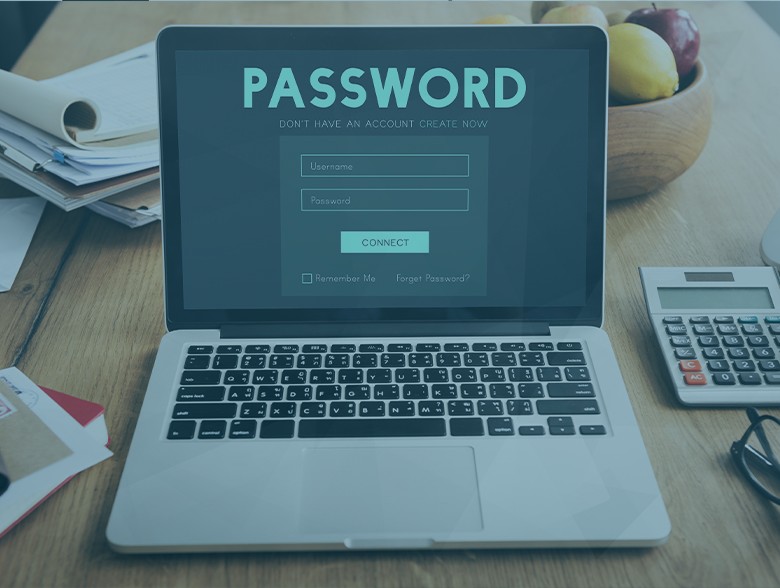AND then never have to type a password again?
By Irwin Gretczko, Founder & CEO, The Hack Blocker
So, what about the customer? Let’s think about the banking, brokerage, or retail websites he relies upon to protect him against predators and hackers. He has been made aware of and may have in place already any combination of the following: Anti-virus programs such as Webroot, Malewarebytes, Zemana Antilogger, SpyHunter, as well as the standard website protections such as 2FA (2 Factor Cell Phone Authentification), a USB key, and Google Authenticator.
As background to this article, you should know that over the last three years, even though I HAD IN PLACE ALL OF THE ABOVE SO-CALLED SECURITY, I, personally, was repeatedly hacked to the tune of $350,000 in different accounts at different institutions by different attackers using varied methods. Fortunately, through attention and diligence, I was able to recoup most of these funds, but the aggravation involved was enormous. Let’s look at some examples:
| $100,000 CD at ALLY bank | (Caught this within 60 days, so the bank’s insurance covered it) |
| $20,000 COINBASE bitcoin theft | (Never recouped this loss) |
| $1,200 AMAZON – two Apple watches | (Recovered after receiving an alert) |
| JUST A FEW AT OUR REGULAR BANK:
$10,000 ACH transaction
$500 in ZELLE withdrawals
And in May 2023, a… $240,000 withdrawal attempt
|
(Thwarted due to an alert)
(Deterred on alert)
(Withdrawal attempt exceeded account balance by $235,000, so it bounced. We had just transferred $240,000 from account days before!) |
What’s more, when I tried to start a clean slate and open a new bank account at another institution, I was denied despite a credit rating of over 800. When directed to Chex Systems for more information, I learned that 32 bank accounts had either been opened or were attempted to be opened in my name nationwide. I was unable to open a new bank account for two months. And what’s more, we were having so much fraudulent activity in our accounts that it had become a full-time job to monitor them. We were hacked so frequently that our bank account-linked credit cards were being replaced every week or so. So often that sometimes before we even activated a card, it was no longer usable. We also incurred many service charges when canceled cards were bounced.
Frustrated, I spoke to security and fraud departments at my banks and brokerage firms to understand how my accounts had been compromised. With no answers forthcoming, I was, regrettably, beginning to equate the cybersecurity industry to the healthcare industry, where it sometimes seems profits supersede the effort to find a cure. Better to keep treating a customer in need than cure him. I preferred not to take this cynical view.
All this, combined with my background as a self-taught programmer with various inventions, prompted me to search for a solution to the problem myself. And I have created one.
First, I needed to set aside from consideration any serious mass breaches of security and focus on the three possible methods hackers use to attack and capture individuals’ private information:
- Capturing online keystrokes (keylogger)
- Watching the screen during website access
- Capturing and transmitting a file that contains your passwords
In our product, HACK BLOCKER, we coined the term “VACCINATES” to emphasize how it protects you against all of the hacking attacks on those websites you choose to “vaccinate.” And it does this after we totally deleted and eliminated all the access security on all of the websites – 2FA, a USB physical key, Google Authenticator, and a half-dozen PC antivirus programs, which I won’t bother to list.
Using our Hack Blocker invention, you gain complete, secure access to your selected websites with a single mouse click. This includes financial – banking, brokerage, retail, and many other websites. The software is purposely portable on a flash drive, making it usable on any PC, with 1-click website access and with unbreakable encryption only overcome by the user\owner. If lost, it is unusable by anyone not knowing the ‘KEY.’ But with the ‘KEY’, inserting a new Hack Blocker Flash Drive into the original PC automatically reinstates it with all your accumulated website data.
So, what’s the magic sauce? It’s simple. When a user adds or edits a new website, we turn off the internet, essentially stopping all internet traffic while the program creates a complex password and encrypts and saves the website’s access information with the owner’s ‘KEY.’ The encryption KEY is memorized by the user\owner and never appears anywhere within the saved data. Then, we turn the internet back on, access the website from a list with a single mouse click and enter the required access information with a click and paste, never having to type on the screen.
While many password manager programs attempt to do this, they are usually cloud-based. They cannot do the vital step that Hack Blocker does – automatically turn off the internet while inputting website access information and turn it back on when done.
Now you have the history behind the Hack Blocker development. It’s less expensive than anything out there and is the ONLY ONE that worked for us. It is ten times easier than 2FA, USB Key, Google Authenticator, etc. And it’s entirely portable – carry it on your key chain and get complete 1-click website-protected access on any PC.
There is now also a downloadable free trial version that installs directly onto your PC’s hard drive which can be activated to full functionality via email.
About the Author
 Irwin Gretczko, Software Designer, Hampton Software Corp. Master’s degree, former physics teacher, self-taught programmer dating back to the ’70s in DOS Basic programming and upgrading in the ’90s to Windows Visual Basic
Irwin Gretczko, Software Designer, Hampton Software Corp. Master’s degree, former physics teacher, self-taught programmer dating back to the ’70s in DOS Basic programming and upgrading in the ’90s to Windows Visual Basic
Irwin Gretczko can be reached at [email protected] at our company.
Website: https://www.thehackblocker.com


